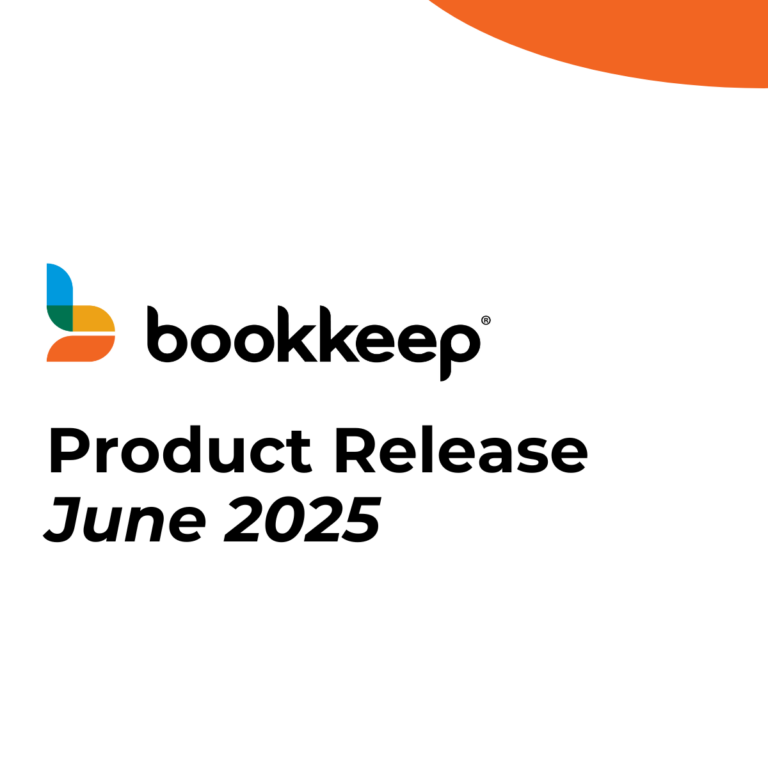At Bookkeep, we’re always thinking about how to make things better – especially when it comes to facilitating a data-based connection that is actually useful for bookkeepers and accountants. Besides automating the process, we’ve always believed that using the accrual method is fundamental. Here’s why.
What we mean by “accrual method”
When we say “accrual method” we mean a way of booking information that prioritizes the connection of sales to the day the sale happened, rather than the day you received the money for said sale. Ditto expenses – the day they were assessed, not the day they were deducted.
How Bookkeep records data in the general ledger:
- Sales data is booked as a summary for the day, each day, automatically
- There is a separate daily summary for each sales platform connected to your general ledger through Bookkeep
- All entries are dated according to the sales date being summarized
What Bookkeep records in the general ledger:
- Sales as a gross number, refunds, discounts
- Broken out: Sales Taxes collected (or withheld), Fees, Chargebacks, Loan Payments, Etc…
- Expected deposit/s recorded in a balance account and consolidated by type where possible (credit card payments, third party processors, cash payments, etc)
Basically, our goal is for this summary to record the daily total for every type of financial transaction that relates to that day on that platform. Of course, we are limited to what the platform will allow us to see. But beyond that, we are committed to capturing all the detail we can, and summarizing it in the books in a way that is more useful than just a net deposit.
Why Bookkeep is built on the accrual method
Here are a few reasons why we think it is so essential to maintaining well kept ecommerce books.
REASON NO.1
Flexibility
Entering sales and associated expenses this way sets up your data to do more than just reflect annual, quarterly, or monthly sales. When sales and fee data are attached to when they actually happened, you have greater capability to customize your reporting.
In other words, you can look at your sales data by more than just the single metric afforded by the cash method – when your sales platform decided to deposit the cash.
REASON NO.2
Consistency
Because sales are summarized by day instead of deposit, you are able to know the period of time covered by each sales entry. You might think you could probably figure out what was what, but remember – weekend money is almost always deposited all together, while sales during the week might be deposited by the day. Or maybe your deposit happens weekly. But, that leaves the months that end mid-week being misreported.
This becomes especially crucial when the amount of lag time between sale and deposit increases. Also, when the deposit schedule is markedly different between platforms, it becomes even more difficult to view your sales for a particular time period.
REASON NO.3
Transparency
By booking sales, taxes, and fees aligned with the sale date, you are able to better track how much money you are owed by your platform. This helps with cash flow planning, especially as you start to get a sense of how long certain deposits take to arrive compared with others.
Beyond this, keeping track of how much you are owed allows you to verify that you are in fact receiving all the funds you are owed. And further, that you are not being mistakenly charged for something you do not owe. Sales platforms make mistakes all the time. It’s just good business practice to know where you stand.
REASON NO.4
Utility
Accounting and bookkeeping done by the accrual method can usually be easily converted to cash basis. Often all that is needed is a few adjusting entries at year end for cash basis tax filers. In addition, almost all accounting platforms have the ability to run reports calculated using either method. The opposite is not nearly as true – it is very difficult to turn books done using the cash method into books that can also be viewed, reported on, and even taxed on the accrual method.
This fact speaks to the true benefit of the accrual method – it tends to include more detail than cash basis. And it’s much easier to distill detail down after the fact than to expand on simple detail after the fact. Even if this was the only benefit of the accrual method, it’s still a no-brainer for us. We want Bookkeep to be a tool that can help as many people as possible. Booking data using the cash method would have made us rather useless to all of the people who need or want accrual method books. Whereas, by embracing the accrual method, if a customer files taxes on a cash basis, they still have the ability to file that way using their bookkeeping – on only the income and expenses they actually received.
REASON NO.5
Clarity
Accrual accounting is the way to actually see if your business truly is profitable. It gives you the tools you need to predict what might happen going forward. Not to mention, it’s the easiest way to convey all this information to others. Reporting becomes better able to compare one week, day, or month to another without having delays in deposit or expense make it seem as if you were more or less profitable than you actually were. This isn’t just good news for running your business, it’s critical for showing the value of your business to others. Think banks, lenders, vendor terms, and even demonstrating the value if you’d like to sell or take on investors
REASON NO.6
Efficiency
This is why Bookkeep exists. Keeping up with well done books using the accrual method is hard work. Add in multiple sales platforms, each with it’s own method of reporting, calculating, depositing sales, and collecting what’s owed… let’s just say bookkeeping for all but the most successful ecommerce businesses was turning less than lucrative for how hard it was becoming. Bookkeep has made it our mission to overturn the idea that booking ecommerce by deposit received is the only profitable way to service ecommerce clients.
Conclusion
We don’t think the deposit schedule of a sales platform should dictate your reporting or data. We think it’s important that when sales happen together, they stay together.
We like to book data in a way that keeps it attached to the seasons, months, and even days of the week that motivated customers to buy – so you can clearly see what’s working, and what isn’t.
We think that flexible, consistent, transparent, useful, and clear bookkeeping should contribute to efficient workflows and make your business more lucrative. At Bookkeep, we are committed to it.
Now, will you help us prove it?




